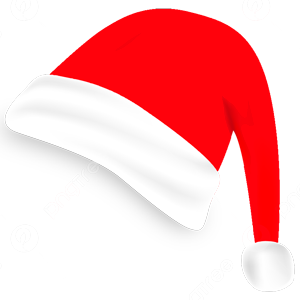Key facts about the DP
Established in 1968, the International Baccalaureate® (IB) Diploma Programme (DP) was the first programme offered by the IB and is taught to students aged 16-19.
For more information please visit https://ibo.org/programmes/diploma-programme/
Curriculum
Students choose six subjects from the six subject groups to study. Three of them must be studied at Higher Level, the remaining subjects must be at Standard Level. Higher Level Subjects explore the contexts more in depth and therefore require 240 teaching hours. While Standard level subjects consist of 150 teaching hours. In addition to the subject requirements students should meet all requirements of the Core to be eligible for the IB Diploma.
Subject Proposal at Idrak Lyceum
The Core
TOK
Theory of Knowledge is a course which investigates how we know what we claim to know. “How do we know?” is the main question of the course. Knowledge questions help students explore and promote personal and shared knowledge. Thus, it is a journey of self, honesty, truth and authenticity. Students learn to analyse and think critically using different Ways of Knowing and Areas of Knowledge. By the end of the course, students should be proficient in conveying the theoretical foundation of essential concepts, formulating arguments and answering to knowledge questions.
EE
The Extended Essay is an in-depth study of a limited topic within a subject. Its purpose is to provide a student with an opportunity to engage in independent research at an introductory level. Emphasis is placed on the process of engaging in personal research, on the communication of ideas and information in a logical and coherent manner, and on the overall presentation of the Extended Essay in compliance with IB guidelines. Students are required to devote 40+ hours to the essay over the course of twelve months.
CAS
All students must be actively involved in the 18 month CAS programme to obtain the diploma. It is one way that IB helps you develop and grow in other areas of life, besides academics. In many ways, CAS provides the extra-curricular aspect of students’ life with reasonable balance between the three strands: creativity, activity and service
As a result of their CAS experience as a whole, including their reflections, there should be evidence that students have
: ∙ increased their awareness of their own strengths and areas for growth. They are able to see themselves as individuals with various skills and abilities, some more developed than others, and understand that they can make choices about how they wish to move forward.
∙ undertaken new challenges. A new challenge may be an unfamiliar activity, or an extension to an existing one.
∙ planned and initiated activities. Planning and initiation will often be in collaboration with others. It can be shown in activities that are part of larger projects, for example, ongoing school activities in the local community, as well as in small student-led activities
. ∙ worked collaboratively with others. Collaboration can be shown in many different activities, such as team sports, playing music in a band, or helping in a kindergarten. At least one project, involving collaboration and the integration of at least two of creativity, action and service, is required.
∙ shown perseverance and commitment in their activities. At a minimum, this implies attending regularly and accepting a share of the responsibility for dealing with problems that arise in the course of activities.
∙ engaged with issues of global importance. Students may be involved in international projects but there are many global issues that can be acted upon locally or nationally (for example, environmental concerns, caring for the elderly).
∙ considered the ethical implications of their actions. Ethical decisions arise in almost any CAS activity (for example, on the sports field, in musical composition, or in relationships with others involved in service activities). Evidence of thinking about ethical issues can be shown in various ways, including journal entries and conversations with CAS advisers.
∙ developed new skills. As with new challenges, new skills may be shown in activities that the student has not previously undertaken, or in increased expertise in an established area. This focus on learning outcomes emphasizes that it is the quality of a CAS activity (its contribution to the student’s development) that is of most importance.
University Entrance
The IB Diploma is a rigorous and demanding programme that provides students with a first-class preparation for their future. Students follow a course of study with a global reputation for academic excellence, and universities throughout the world recognize the IB Diploma as an entrance qualification to higher education degree courses. In some countries, such as the United States and Canada, the IB Diploma qualifies students for advance placement or academic credits; furthermore, students with the IB Diploma are accepted at a higher rate at selective U.S. universities than those with other qualifications. The İB Diploma is also recognised by Ministry of Science and Education of Azerbaijan and students are accepted to the university without any other qualification.For more information please visit https://ibo.org/programmes/diploma-programme/

